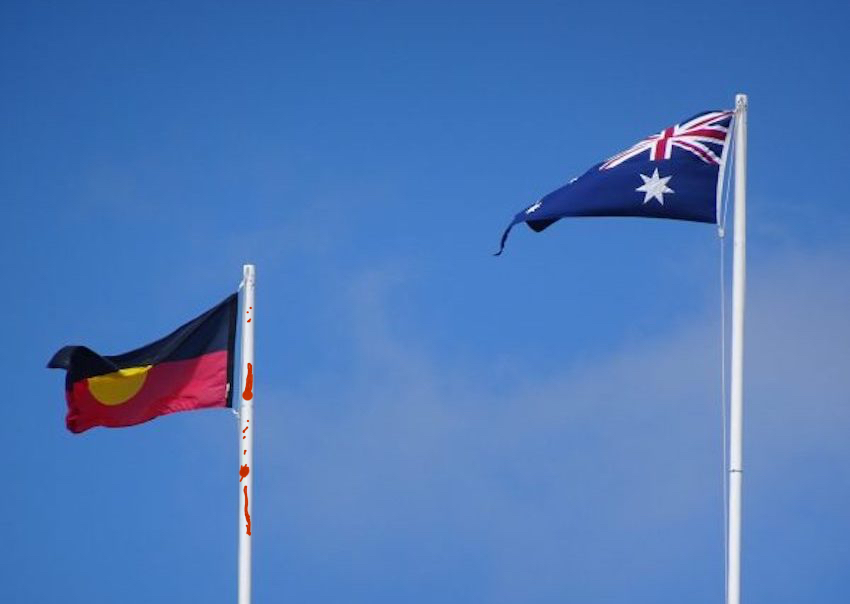
THE NAKED CITY: THE GRUMPY AFTERMATH TO AUSTRALIA DAY

In the ‘70s and ‘80s, the gong for Australian Of The Year went to a very mixed bag of essentially famous people. Paul Hogan was the winner in 1985, followed in successive years by Dick Smith and John Farnham. Back in the late ‘70s, the well known embezzler and all round corporate crook, Alan Bond was the lucky winner. In 1992, the Big Day Out music festival debuted on Australia Day and later attracted controversy when the organizers banned over patriotic hoons draped in the Australian flag.
In recent years both the celebration of Australia/Invasion Day and the choice of Australian Of The Year has changed substantially. Gongs are awarded largely to those who have contributed to the community rather than celebrities and the famous. Many of the public activities that take place on the day celebrate the diversity of the nation, relatively free of any flag waving fervour.

One of the positive aspects of modern day Australia is this lack of uber nationalism. Sure we get wound up when one of our sporting teams achieves international glory but we are relatively free of the jingoistic madness that currently defines many countries and sparked the insane Jan 6 attack on the Capitol Building in Washington.
You can thank our post war cultural diversity for our relatively low key displays of patriotism and our ongoing political stability. Many of the migrants who settled here in the past half decade came from countries torn apart by war and political conflict. The last thing they wanted was a repeat of that turmoil here. Many on the right attacked multi-culturalism as disruptive and ‘Un-Australian’, yet the irony was that it actually became a unifying force.

Whilst there’s the feel good side, it’s sharply contrasted with the protests of First Nations people and an increasing number of fellow Australians who see the January 26 date as ‘invasion day’. One aspect of this protest that is seldom discussed in the early history of Australia colonisation is Britain’s appalling role in the international slave trade during the 18th Century.
We are all familiar with historical artwork and re-enactments of Captain Arthur Phillip setting foot at Sydney Cove on 26 January, 1788. It was a time when slavery was still legal in Britain and throughout its numerous colonies. Whilst the Slave Trade Act of 1807 encouraged a gradual abolition it wasn’t until 1833 that Parliament passed the Slave Abolition Act, freeing some 800,00 slaves throughout the British Empire.

It’s little wonder then that the early colonizers had little qualms about stealing the lands of First Nations people, given what was then the widespread public acceptance of the Atlantic slave trade. Even today students in Australian schools are more likely to be acquainted with slavery in America than a Britain that sent almost a million captive Africans to Jamaica between 1655 and 1807.
How much the British crown benefited from slavery is often discussed and often denied but surely some of the enormous wealth generated by the trade and the relentless exploitation reached the hallowed halls of the palaces. When slavery was finally abolished, some 46,000 British slave owners were paid out the equivalent today of about £16bn as compensation for ‘losing their property”. Amongst them were numerous aristocrats, politicians and public office holders, all loyal servants of the monarchy at the time, and all highly invested in preserving a strict status quo.
This was probably not the ‘British Heritage’ we were celebrating on Australia Day, according to Peter Dutton, however there’s no denying that the shackles of the monarchy still thwart Australia really growing up and becoming a truly independent country.
The date of Australia Day definitely needs to be changed, to clear the stench of lingering British colonialism once and forever. Whether it will happen before we become a republic or the Voice To Parliament becomes an active entity, remains to be seen.









